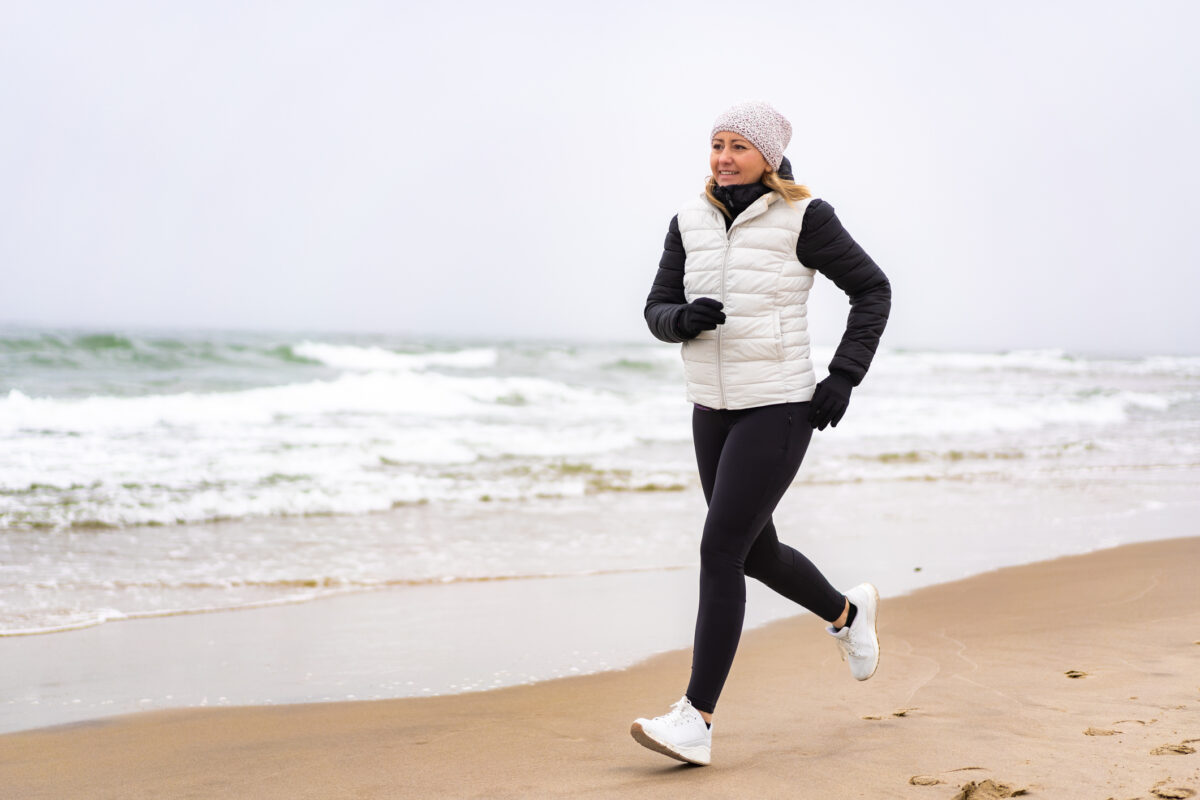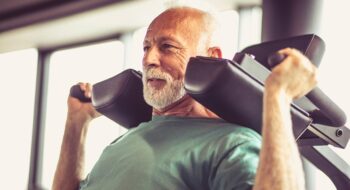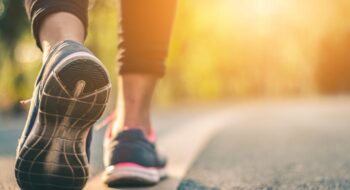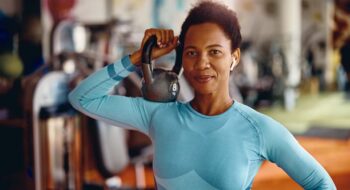Exercising outdoors when temperatures are cooler and daylight hours are shorter can be more challenging, but with the right approach you can stay safe, fit and comfortable while doing it.
It’s important for your overall health to maintain your workout routine throughout the winter season despite the cold and lack of sunshine. You may be more tempted to stay inside snuggled under a warm blanket but staying active is crucial for overall health and reducing the risk for illness. Not only does sticking with your exercise routine in the winter keep you healthy physically, it can also boost your mood, energy levels and overall well-being.
“Regular physical activity lowers your risk for conditions such as high blood pressure and stroke. It can also improve cognitive function and your overall mental health, as well,” says Dr. Sean Nguyen, medical director of primary care at Tidelands Health and a family medicine physician at Tidelands Health Family Medicine at The Market Common. “I strongly encourage everyone to incorporate walking, yoga, fitness classes, swimming – really any kind of physical activity you enjoy – into your routine as part of a healthy lifestyle.”
Dylan Feagin, a certified exercise physiologist at Tidelands Health Pawleys Family YMCA, offers the following tips and steps to exercise safely during the colder months:
Dress in layers
Depending on the temperature, it may be a good idea to dress in layers. If so, your first layer should be a long-sleeved, moisture-wicking fabric that absorbs sweat and helps regulate body heat. Add a layer like fleece for insulation without overheating and a final, outer layer that is water- and wind-proof. For the legs, leggings or tights are good options for the base layer; you can use shorts or pants as an outer layer to cut the wind.
Consider protecting your extremities with insulated gloves or mittens, a warm hat, moisture-wicking, thermal socks, an athletic scarf or facemask and waterproof footwear.
Enjoying this story? It’s free to republish. Learn more.
Warm up properly
Before heading outdoors to work out, warm up indoors. A proper warmup that focuses on stretching and warming the joints increases blood flow and enhances flexibility.
“Proper warmups can be simple: jogging in place, high knees and dynamic stretches are some good examples,” Feagin says. “These movements will increase heart rate and blood flow to the muscles before more strenuous exercises.”
Stay hydrated
Hydration is just as important during the winter as in the summer. You might not feel as thirsty but staying hydrated despite the cooler temperatures is crucial. Drink plenty of water before, during and after exercise.
“Even if the cardinal signs of water loss aren’t there during exercise, chances are you are still rapidly losing water weight and need to stay on top of hydration,” Feagin adds. “Without water, we risk damaging our kidneys, developing urinary problems and problems regulating body temperature.”
See and be seen
With shorter days and longer nights during winter, it’s a good idea to wear reflective clothing or accessories to enhance visibility. Carry a flashlight or wear a headlamp or reflective vest when exercising in low-light conditions. If possible, choose well-lit paths when walking, cycling or running.
Listen to your body
Pay attention to how your body responds to winter workouts. If you experience pain or discomfort, take a break or stop to avoid overexertion, which can increase injury risk. If you have a condition such as COPD or asthma, which can worsen in cold weather, talk with your doctor before exercising outdoors.
There may be times when conditions make it difficult to exercise outdoors, and exercising indoors makes more sense. Craft your own home workout routine or take a class at an indoor fitness facility such as the YMCA of Coastal Carolina.
As a YMCA member, you’ll also have access to a portfolio of exercise videos for working out at home. Tidelands Health is the exclusive health system partner of the YMCA of Coastal Carolina, including Claire Chapin Epps Family YMCA in Myrtle Beach, Tidelands Health Pawleys Family YMCA and Tidelands Health Georgetown Family YMCA. Together, the two organizations are providing the community with access to a broad variety of services and programs to improve health and wellness.
“With the right preparation and awareness, you can enjoy the benefits of exercise throughout the winter,” Feagin says. “Prioritize safety, dress appropriately and be mindful of your body’s response to the cold to help ensure a healthy and active season.”

Dr. Sean Nguyen
Family Medicine Physician at Tidelands Health Family Medicine at The Market Common in Myrtle Beach
Bio
Dr. Sean Nguyen is a family medicine physician practicing at Tidelands Health Family Medicine at The Market Common in Myrtle Beach. A native of Myrtle Beach, Dr. Nguyen speaks English and Vietnamese.
Learn MoreMedical Education
Education
Wofford College, Medical University of South Carolina
Internship
Tidelands Health MUSC Family Medicine Residency Program
Meet the Expert
Dr. Sean Nguyen
Dr. Sean Nguyen is a family medicine physician practicing at Tidelands Health Family Medicine at The Market Common in Myrtle Beach. A native of Myrtle Beach, Dr. Nguyen speaks English and Vietnamese.





